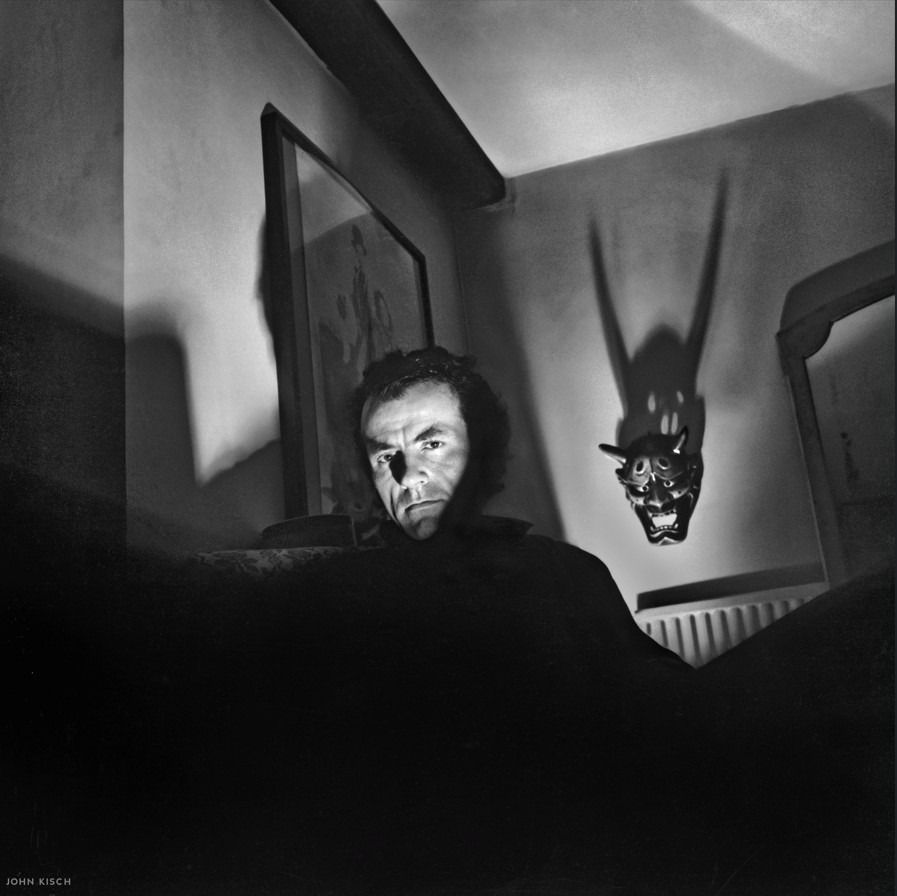‘It’s weird music’: Hugh Cornwell on his 1979 album ‘Nosferatu’ and upcoming ‘Come and Get Some Tour’
Hugh Cornwell is best known as the lead vocalist and guitarist for the punk rock/new wave band The Stranglers from their foundation in 1974 to his departure in 1990. However, Cornwell’s musical career did not end when he left the Stranglers; in fact, far from it. Since leaving the band, he has released 10 solo albums – plus various collaborative and live albums – and continues to tour. In our conversation, Cornwell discussed how he intends to keep performing live, since, as he put it, “I don’t know how much longer I’m going to be able to do tours and play,’ so he wants to continue “while all my fingers and my voice are still working”.
When asked what he is most looking forward to about the upcoming tour, Cornwell answered, “getting through the first show, because the first show is the hardest one”, proving that even musicians who have been in the business for almost 50 years find the first night daunting! This tour is a particularly “demanding thing” due to Cornwell’s decision to perform his 1979 album Nosferatu in full – a setlist ‘trend’ Cornwell recalls the Rolling Stones starting.
As a songwriter, Cornwell is acutely aware of how an album has “been crafted as one thing”. It’s “not just the single” people know, instead, “there’s a track before it and a track after it”, intentionally arranged by the artist. These days, the way people download music “means they can pick and choose, “often leaving the album behind. Therefore, Cornwell enjoys how performing an entire album places the focus back on the album, “not just the separate songs”.
In fact, Hugh took having “nobody to answer to” to a new level, recording the album without informing his record label
“It’s weird music, it demands quite a bit of the listener to listen to it,” said Cornwell when describing Nosferatu. It certainly is a unique album, and it is perhaps precisely this unique nature that has given the album “a cult status” among fans. The album takes its name from the 1922 silent film Nosferatu, which provided “a sort of little bubble of fantasy…to live in” when creating the album. Cornwell said he and Robert Williams, the drummer from Captain Beefheart’s Magic Band, who collaborated with Cornwell on Nosferatu, “were like vampires” themselves, recording at night so “getting back to the hotel before the sun came up”.
Outside of the clear gothic, vampiric influences taken from Nosferatu, Cornwell discussed at length with me his interest in the Victorian Grotesque, which offered further inspiration for the album. The Victorian Grotesque was the Victorian cultural fascination with the strange and unusual. This included ‘freaks’ found ‘in the old fairgrounds’, like ‘the bearded lady’ and ‘Siamese twins’ who ‘were paraded as curiosities for entertainment’. Cornwell stated that “there’s bits of this that have been drawn upon in Nosferatu”, as the album explores “a certain fantasy element that’s dark, but also very enticing”. This influence can be found most prominently in the track ‘Wrong Way Round’, which features Ian Dury, of Ian Dury and the Blockheads, doing some classic “fairground barking”, and tells the story of a woman who is “built the wrong way round”.
Nosferatu was Cornwell’s first studio album away from the Stranglers, and while he admits it was “weird”, the process also offered greater creative freedom as it eliminated that “certain responsibility” you have “when you’re in a band with other people”, as suddenly you have “nobody to answer to”. In fact, Hugh took having “nobody to answer to” to a new level, recording the album without informing his record label, who were rather confused when they received “bills from studios in Los Angeles”. Luckily, they paid, and so Nosferatu was born.
Cornwell will be performing at the Warwick Arts Centre on November 14, supported by the Fabulous Courettes
Cornwell garnered his initial fame from the Stranglers, who are, of course, best known for their hit song ‘Golden Brown’, which has recently found renewed interest through TikTok. Cornwell was unaware of the song’s viral nature but said he feels “very fortunate” to have written a song that remains so popular four decades after its original release.
The longevity of ‘Golden Brown’ is all the more impressive considering “it was written in five minutes”, based around “this bit of music” the keyboard player (David Paul Greenfield) had come up with. Cornwell directed David, asking him to “play that bit four times, then move to that other bit”, creating the hypnotic, repeating structure of the song we have today. Reactions amongst the band were mixed upon first hearing it, with the drummer calling it “a smash hit”, while the bassist said it was “horrible”. Now, the track has gone two times platinum and remains popular to this day. “Isn’t that funny,” Cornwell said, concluding his story, “A song that’s lasted forty years. Yeah, incredible”.
To end our conversation, I wanted to ask Cornwell for his advice to young musicians, especially since Warwick has such an active music scene. He advised young people to “try and come up with something new,” admitting that although this is “very hard to do, ‘you’ve got to have your own style…and try to be completely original.” Alternatively, you can “find something that was successful but isn’t around anymore and bring it back.” Overall, while Cornwell encourages young musicians to pursue their passion, his parting words warned that “they shouldn’t give up their day job either, because it’s tough out there.”
Cornwell will be performing at the Warwick Arts Centre on November 14, supported by the Fabulous Courettes. Whether you only know a couple of Stranglers hits or are a die-hard fan who can’t wait to hear Nosferatu in full, I suggest you Come and Get Some, as the title of the tour suggests.

Comments